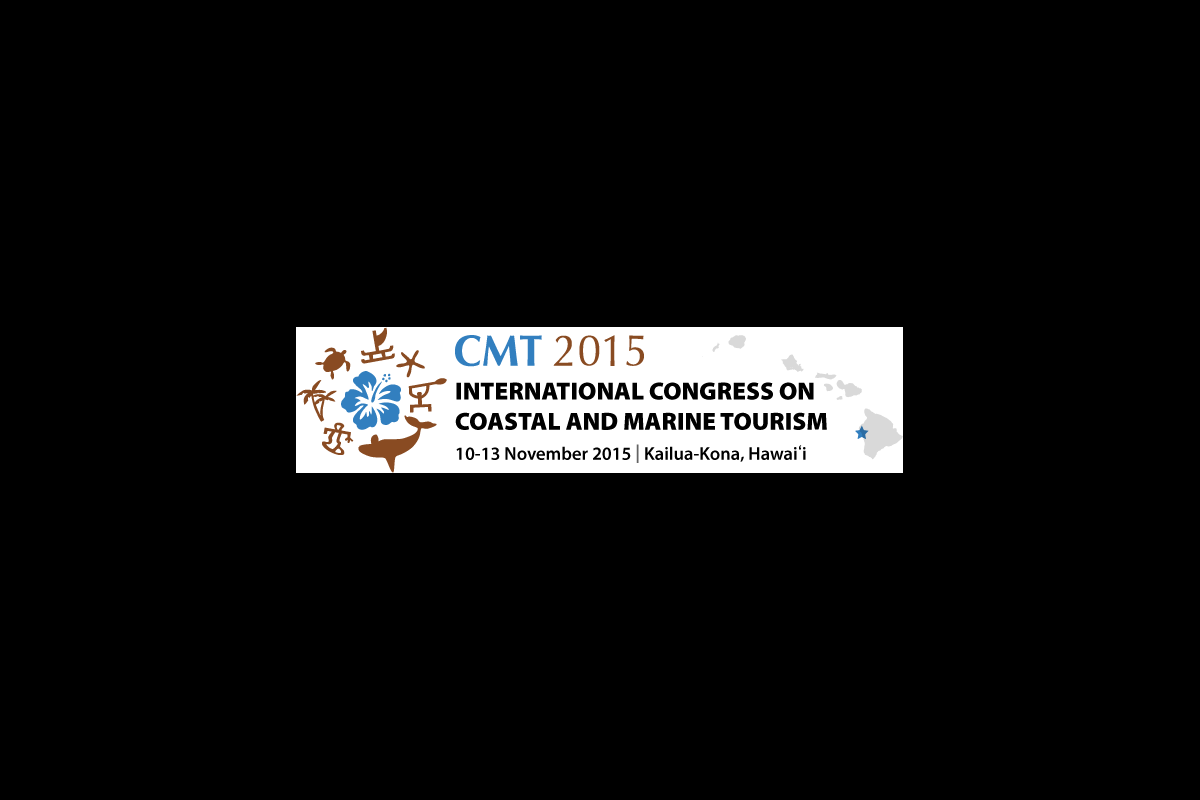
CONFERENCE THEME25 Years of CMT: Learning from the Past, Looking to the FutureThe International Congress on Coastal and Marine Tourism (CMT) returns to Hawaii 25 years after its inaugural meeting there in 1990. Recent previous CMT conferences have been in New Zealand, South Africa, and the Netherlands. We invite researchers, educators, government and industry practitioners, students, and representatives of other organizations to consider submitting abstracts for research papers and/or posters at the 25 Year Anniversary CMT 2015 under the general theme of "Learning from the Past, Looking to the Future."CONFERENCE TOPICSPapers and posters may be presented on a range of topics focusing on coastal and marine tourism including, but not limited to, the following:• Marine Wildlife• Education and Interpretation• Marine Protected Areas• Hawaiian and Pacific Islanders• Planning and Development• Surfing• Scuba Diving/Snorkeling• Cruise Industry• Social and Environmental Impacts• History and Heritage• Yachting/Boating and Marinas• Coastal Resorts• Small Islands• Coastal Trails and Beaches• Marine Ecotourism• Marine Water Sports• Governance/Policies/Stewardship • Sustainability and Certification• Seafood Tourism• Impacts on Fisheries and Coral ReefsA special session will be held on the topic of Climate Change and Hazard Resilience in Coastal Tourism, and participants may also suggest other special sessions to the conference Co-Chairs.SUBMISSION TYPESPapersResearch papers can be submitted in the form of an extended abstract (must be between 450 and 500 words) that will be published in the conference’s digital proceedings. Abstracts can be based on any type of data (e.g., surveys, experiments, interviews, focus groups, content or historical analysis, econometric analyses, biological analyses). Each abstract should contain a clear statement of the problem, research questions or hypotheses, brief description of the methods and results, and a clear conclusion specifying implications for managing coastal and/or marine tourism. Abstracts describing research that is proposed (where data collection and analysis are incomplete) are acceptable, but will only be considered for inclusion in the poster session (see below). Selected presenters at the conference may also be invited to submit full papers to a future special issue of the international journal Tourism in Marine Environments (TIME) devoted to CMT 2015.PostersAbstracts (must be between 200 and 250 words) of a proposed poster can be submitted, and if accepted, will be presented at a designated poster session. Poster abstracts will also be included in the conference’s digital proceedings.Authors will be advised by August 1, 2015 if their topic and abstract are accepted for the conference, but we will attempt to make decisions on early submissions as soon as possible after they are submitted.STUDENTSStudent attendance is strongly encouraged and discounted conference registration and room rates (including the ability to share accommodation) will be offered to encourage their participation. The International Coastal and Marine Tourism Society (ICMTS) will also award prizes for the best student poster and best student presentation at CMT 2015.IMPORTANT DATESJanuary 15, 2015 First AnnouncementFebruary 15, 2015 Abstract Submissions OpenApril 1, 2015 Early Bird Registration OpensJune 15, 2015 Abstract Submission ClosesAugust 1, 2015 Notification of Abstract AcceptanceSeptember 15, 2015 Early Bird Registration ClosesOctober 15, 2015 Registration Deadline for PresentersNovember 1, 2015 Full Program AnnouncedABOUT KAILUA-KONAKailua-Kona is the main community on the western side of the Big Island of Hawaii. It is nestled on the flank of Hualalai volcano, and in ancient times was considered the premier place to live due to the excellent weather and good water. Hawaiian kings made their homes here, and in more recent times, the tiny fishing village developed into a small seaport and tourism hub. Kailua-Kona is now famous for coastal and marine tourism (e.g., humpback whales, manta rays, spinner dolphins, coral reefs), Hawaiian culture, sunsets, beaches, great weather, and some of the best coffee in the world cultivated on the slopes of Hualalai. Kona gets very little rain and enjoys more than 300 days of sunshine a year, and is also home to the Hawaiian International Billfish Tournament and the Ironman Triathlon World Championship.CHAIRS AND COMMITTEESConference Co-Chair and Head of the Local Organizing Committee:Brian Szuster, PhDAssociate ProfessorDepartment of GeographyUniversity of Hawaii at ManoaConference Co-Chair and Head of the Program Committee:Mark Needham, PhDAssociate Professor and Gene D. Knudson Endowed ChairDepartment of Forest Ecosystems and SocietyOregon State UniversityInternational Steering Committee:Jan Auyong, Oregon State University, USAMichael Lück, AUT University, New ZealandMarc Miller, University of Washington, USAMary Mostafanezhad, University of Hawaii, USAPeter Myles, Nelson Mandela Metropolitan University, South AfricaMark Orams, AUT University, New ZealandJeff Wilks, Tourism Safety Group, AustraliaLOCAL HOST AND SPONSORSCollege Of Social Sciences, University of Hawaii at ManoaInternational Coastal and Marine Tourism SocietyUniversity of Hawaii Sea GrantNational Oceanic and Atmospheric AdministrationHawaii Tourism AuthorityAdditional sponsorships welcome; if interested, please contact the conference Co-Chairs.
Tags:




